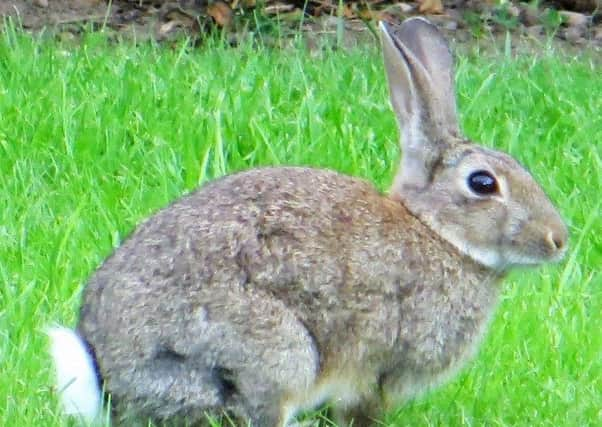Open season for the plant nibblers


“Is it the leaves?” I asked, thinking of possible suspects – caterpillars, thrips, leaf cutting bee, etc.
“No, it’s the flower buds,” he said. “They’re vanishing overnight.”
“Oh dear,” I responded.
To which he replied: “How on earth did you know that?”
Advertisement
Hide AdAdvertisement
Hide AdIt transpired that he’d known the answer all along, having watched a deer feasting on them early one morning.
It’s open season for all manner of plant nibblers and suckers – those that operate during daylight hours under your very nose, and others that go unobserved overnight.
Wood pigeons are ever-present in this garden, and they’re becoming bolder year-on-year. In the past they’d fly off into the field when I opened the kitchen door. Now they only walk two metres away, adding a hop, skip and jump if pursued. They’ve called my bluff and know they’re safe.
Visiting rabbits have also cottoned on to this so netting is required for all vegetables.
Advertisement
Hide AdAdvertisement
Hide AdBut that’s not good enough when cabbage white butterflies arrive. It takes a fine mesh to keep them out. Just one symmetrical deposit of eggs on the underside of a leaf gives rise to a horde of hungry caterpillars.
If the gooseberry bushes are not netted, the same thing happens.
Different plant, different species, but the magpie moth caterpillars can defoliate a bush in days.
And don’t let little aphids fool you.
Be they black on broad beans, grey on cabbages, or green on almost everything else, once winged females take to the air colonies spring up everywhere.